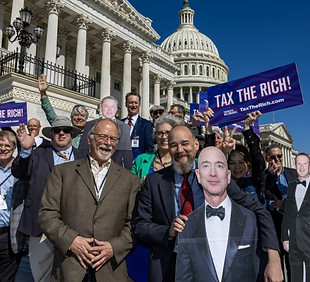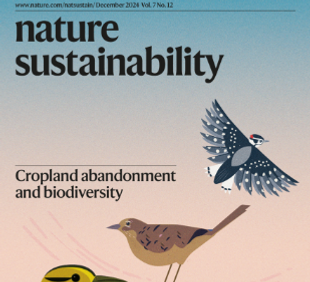
Our work
We research social movements to understand their role in social change and help them be more effective.
.jpg)
Attitudes to factory farming practices in the UK & US
February 2026
Findings from a public opinion survey revealing significant opposition to factory farming practices, despite the issue's low salience. The more people know about factory farming, the more they oppose it.

Should the climate movement organise around extreme weather events?
December 2025
A discussion paper with case studies where activists have organised in response to extreme weather events, from Vermont, the Philippines, and Spain. Co-authored with Maciej Muskat from Greenpeace International.

Small Movements, Big Change
December 2025
A survey of 57 small, grassroots movements exploring what drives them, what they’ve achieved, and the barriers they face. Conducted in collaboration with The Movements Trust.
AI is on the March. Is the AI Safety Movement Ready?
August 2025
A report exploring how civil society is mobilising through protest, education, and advocacy to address rapidly advancing AI risks.

The short and long-term effects of disruptive animal rights protest
July 2025
Our paper, published in the journal Humanities and Social Sciences Communications, finding initially negative effects of disruptive protests dissipated after six months.

What was the impact of the Swedish Restore Wetlands campaign?
July 2025
An evaluation of the Swedish Restore Wetlands campaign, using media analysis, public opinion polling, parliamentary data, voting intention trends, and interviews with politicians and other experts.

Strategies & tactics to curb the fossil fuel industry
June 2025
How civil-society groups are holding fossil-fuel firms to account with insights into which tactics are most likely to be effective.

Protest and the Ballot Box
May 2025
Analysis of voting intention polls from the UK, Sweden, and Germany, exploring the impact of disruptive climate protests on electoral preferences.

Making a scene and making sense
February 2025
An analysis of how the logic of a protest - how intuitively an action relates to a movement's goals - affects levels of active support and media attention.

Radical climate protests linked to increases in public support for moderate organisations
October 2024
Our paper, published in Nature Sustainability, with real-world evidence that disruptive climate protests can increase support for more moderate organisations. Read a shorter research briefing here.

Activists Resource Hub
October 2024
A curated website of resources available to activists and campaigners, includes guidance on writing press releases, finding training, building a caring organisational culture, and finding a fiscal host.

Campaigning & Activism: What Funders Think
September 2024
A survey of 100 funders about their attitudes to supporting campaigners and activists. While most funders value campaigning, they cited a range of barriers to providing more funding.
.jpg)
Public Opinion on Prison Sentences for Just Stop Oil Supporters
August 2024
A nationally representative poll of reactions to record prison sentences for activists planning nonviolent protests.

What Was The Impact of The Insulate Britain Campaign?
March 2024
An impact analysis of the Insulate Britain campaign, assessing the extent to which it achieved its aims and changed UK Government policy.
.jpg)
The Effects of Protest Tactics & Messaging Strategies On Attitudes Towards Animals
March 2024
A randomised controlled trial study to explore how attitudes to animals are affected by descriptions of different animal rights protests and messaging strategies.

The Short & Long Term Impacts of Disruptive Animal Rights Protest
February 2024
An in-depth research project on the effects of a protest by Animal Rising in 2023, using nationally representative polls, a vignette study, media analysis, and mobilisation analysis.

Mapping the UK Farmed Animal Advocacy Movement
December 2023
A report mapping the UK farmed animal advocacy sector, outlining the resource allocation within the sector and funding allocated to different strategies and stakeholders.

Animal Rising's Grand National protest: Public opinion impacts and beyond
August 2023
Public opinion polling to understand the short-terms impact of Animal Rising's disruption of the 2023 Grand National protest.

What Do Experts Think About Social Movements & Protest?
July 2023
A survey of 120 academics on tactics, strategies and targets for effective social movements. Read the results on the Apollo website or our full report here.

May 2023
A report on the funding landscape for movements, the funding gap and how philanthropists can better support grassroots groups.

What Makes A Protest Movement Successul?
January 2023
Research exploring what makes protest-based movements effective, drawing on polling, interviews, and case studies.

How do radical tactics affect moderate groups?
December 2022
Analysis of nationally representative surveys that detected a positive radical flank effect, whereby increased awareness of a radical climate groups was associated with increased support for and identification with a moderate climate group.

A case study of UK anti-animal testing activism: SHAC
November 2022
A case study exploring the Stop Huntingdon Animal Cruelty, an animal rights campaign in the 2000s. We identify some key reasons why it achieved significant successes, as well as potential reasons that led to its later decline.

October 2022
A literature review of existing work on success factors for protest movements. We examine research looking at nonviolence, numbers, the radical flank effect, and external contextual factors.

October 2022
Results from an informal survey of 16 individuals across 13 grassroots social movement organisations, (SMOs) focusing on climate and animal advocacy.

Animal Rebellion: public opinion polling
October 2022
We conducted 2 x 1,500 person longitudinal and nationally representative public opinion polls before and after a major animal advocacy campaign in the UK, organised by Animal Rebellion.

July 2022
A synthesis report examining the impact of protest movements on public opinion, policy change, public discourse and media coverage, voting behaviour, and corporate behaviour.

July 2022
Interviews with three UK Civil Servants to understand the impact of protest movements on UK policymaking.

Expert interviews: protest outcomes & success factors
July 2022
Interviews with 12 academics and experts to understand the impact of protests on policy and public opinion.

May 2022
Public opinion polling of a major Just Stop Oil protest. Despite disruptive tactics, there was no loss of support for climate policies. Furthermore, respondents’ reported they were more likely to participate in environmental activism.

Protest outcomes: literature review
April 2022
A review of literature on movement outcomes., ranging from policy change, public opinion, voting behaviour, public discourse, and corporate behaviour.

A cost-effectiveness analysis of Extinction Rebellion
November 2021
A cost-effectiveness analysis of Extinction Rebellion's campaigning in 2021 and the likely impact on carbon emissions, climate policy and climate discourse.
